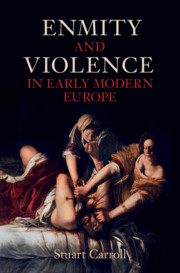
- Cited by 1
-
Cited byCrossref Citations
This Book has been cited by the following publications. This list is generated based on data provided by Crossref.
Greengrass, Mark and Hamilton, Tom 2024. Gaspard de Monconys’ Defence against the Charge of Imposture: Criminal Justice, Social Hierarchy, and Personal Identity in Early Seventeenth-Century France. The Seventeenth Century, p. 1.
- Publisher:
- Cambridge University Press
- Online publication date:
- March 2023
- Print publication year:
- 2023
- Online ISBN:
- 9781009287319




